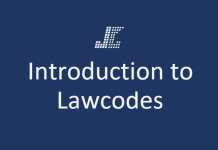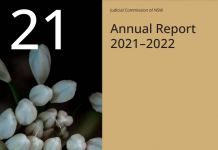Update 73, June 2023
Update 73 amends the Criminal Trial Courts Bench Book to incorporate recent case law and legislative developments. The following chapters have been revised:
Acquittal — directed
- [2-050] Introduction to add reference to the ballot procedure in accordance with s 55G Jury Act 1977 where a directed acquittal is being ordered in relation to only some accused persons or counts and the jury consists of more than 12 jurors.
Complicity
- [2-770] Notes to add reference to Mitchell v The King [2023] HCA 5 where it was held that combining the doctrine of extended joint criminal enterprise with the South Australian statutory provision of constructive murder (drafted in similar terms to s 18 Crimes Act 1900 (NSW)) was impermissible as it amounted to creating a new doctrine of “constructive, constructive murder”, where no such doctrine has ever existed.
Expert evidence
- [2-1140] Notes to add reference to Al-Salmani v R [2023] NSWCCA 83 which confirms that it will be a rare case where responsive answers by an expert to a cross-examiner’s questions would be objectionable, and Dirani v R [2021] NSWCCA 202 regarding the inadmissibility of police expert opinion evidence where such evidence was mere speculation and not based on any identified expertise.
Complaint evidence
- [5-030] Evidence of complaint where witness not available under s 65(2) to add reference to RC v R [2022] NSWCCA 281 regarding what constitutes the requirement of “all reasonable steps” being taken to compel a person to give evidence in the Dictionary definition of “unavailability of persons” for the purpose of s 65(1) Evidence Act 1995.
Expert evidence — specialised knowledge of child behaviour
- [5-310] Notes to add reference to BQ v R [2023] NSWCCA 34 regarding the admissibility of expert evidence where it addresses the relationship between a child and a perpetrator and its effect on the child’s behaviour, and circumstances governing jury directions about how such evidence is not relevant to a particular complainant’s credibility.
Break, enter and commit serious indictable offence
- [5-5100] Suggested direction to amend the suggested direction, which has been designed to fit the most common offence of break, enter and steal, to incorporate the ruling in BA v The King [2023] HCA 14 that a person with lawful authority to enter premises will not be guilty of “breaking and entering” under s 112 Crimes Act, even if force is used to gain entry.
- [5-5110] Notes to add reference to BA v The King, Ghamrawi v R (2017) 95 NSWLR 405 and Singh v R [2019] NSWCCA 110 regarding the concept of “breaking” and “constructive breaking” at common law; and Nassr v R [2015] NSWCCA 284 regarding the definitions of “serious indictable offence” and “dwelling-house”.
Duress
- [6-170] Notes to add reference to Rowan (a pseudonym) v R [2022] VSCA 236 where it was held that a continuing or ever present threat subsisting at the time of the offence was sufficient to engage the defence of duress.
Necessity
- [6-350] Introduction to add reference to Veira v Cook [2021] NSWCA 302 regarding factors to be taken into account in determining whether the defence of necessity is established.
Summing up format
- [7-000] Suggested outline of summing up to add reference to Cook (a pseudonym) v R [2022] NSWCCA 282 regarding the requirement of the trial judge to give oral directions where written directions are provided.










